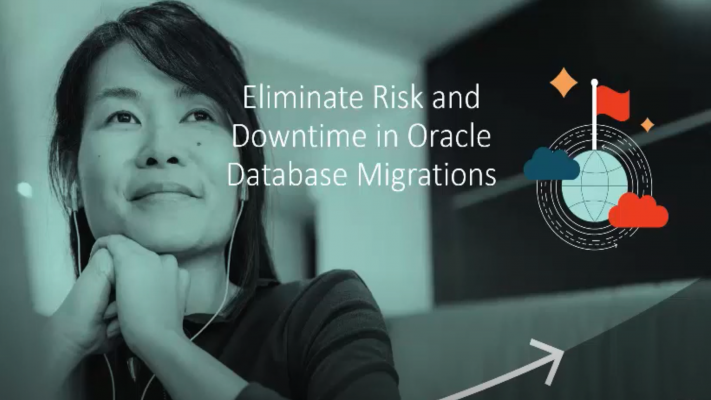
Quest SharePlex for Oracle Migrations
Sign In
In this short tutorial, you can learn how to migrate Oracle databases using the Quest SharePlex application. You'll be able to preserve consistency, maintain failver and preserve transactions while migrating from source to target system. Check it out and you can view the transcript below.
Quest SharePlex for Oracle Migrations
Clay Jackson: [00:00:00] Hi, this is Clay Jackson, senior sales engineer here at Quest Software, I'm going to talk to you today about how to eliminate risk in downtime in Oracle database migration using our award winning database replication tool Quest SharePlex. We start out with your source system, your current production environment, whether your users and all your Oracle databases and your new production environment up here in the left. That's just disks and an operating system. Now the disk and operating system can be different. Hardware Solaris to Linux access to cloud. It doesn't really matter to us or SharePlex. We can handle the conversion for you. We're going to start out by installing and configuring SharePlex on the source and the target and starting SharePlex on the source. You get to capture queue for the export queue and post queue on the target. The post you is just going to contain the transactions we're capturing and have them available to apply to the target, as I'll explain in a few minutes. Now you're going to take a backup of your system to a particular scorn if you're just moving versions of Oracle or migrating to the same hardware. You can use our man or whatever you want to take that backup as long as it's consistent to an FCN. If you're changing hardware or doing some other work, you may need to use export. You can use consistent equals y, or you can make an intermediate copy of your database and back up that quiet copy of the database using export.
Clay Jackson: [00:01:26] Either way, works fine. You're still capturing the transactions that occurred since that scan here in the post queue and getting ready to move those over into the target. Once you're ready to move to the target, you've got everything restored. Everything's all set and ready to go. You tell Post to reconcile. Throw away the transactions prior to the scan you remembered and post the transactions after that. At the end, you're going to catch up, you're going to apply all the old. Those old transactions get the. New database, a new production looking exactly like the old production you can then use SharePlex's compare and repair utility to make sure that it does look like the old production use Compare CP. Built into the product, no additional fees, no additional issues there. Just compare table name and we'll tell you if they're different and if they're different, we'll give you the sequel to fix them. Next thing you're going to do in order to eliminate the risk of migration and then having to fall back for whatever reason is you're going to start replication from the source, your new source, your new production back to the old source of the old production, which is now a target. Again, you're not going to post the data, you're going to hold it in the post queue and there's going to be no data there. Yeah, because there are no users. But at this point, you can also test your new production environment. You can make sure everything's working right.
Clay Jackson: [00:02:40] Move some users over there testing. Maybe you're going to want to repeat this process two or three times to get your timings down right. It doesn't matter because your users are still over here. They've seen no downtime yet at all. Once you're ready to actually move the users, you set them up and move them. Move becomes just simply changing DNS or telling people to log into a new system uses over on the new system and you're up and running, replicating back to your old system in case you need it. Heaven forbid you have to go out and fall back you. So then we tell you users up, move back to the old environment and put them back there. No harm, no foul. You haven't lost any transactions. You've got all those transactions applied on the old system, and you can live to fight another day and try it again later. You can also test in that new environment and make sure that you don't have to fail back. But if you do need to fail back, that that option is there for you and available. Additional resources, should you need them? Look at our request XCOM SharePlex product page and we'll have all sorts of interesting videos and more information about it. Or give us a call and let us give you a demo of how share blocks can be used to help you migrate your data from one environment to another. Thank you very much for listening.
![[DEMO] * DEV * Truth in IT [DEMO] * DEV * Truth in IT](https://dev.truthinit.com/public/frontend/v2tinitblue/images_default/logo.png)
![[DEMO] * DEV * Truth in IT [DEMO] * DEV * Truth in IT](https://dev.truthinit.com/public/frontend/v2tinitblue/images_default/logo_mini.png)